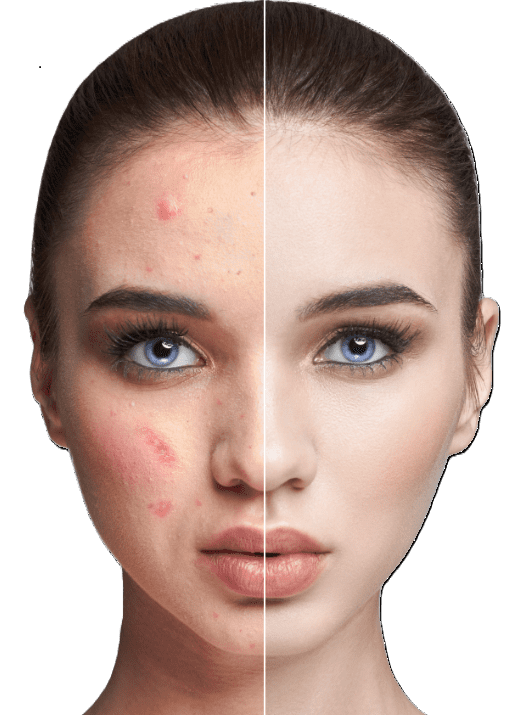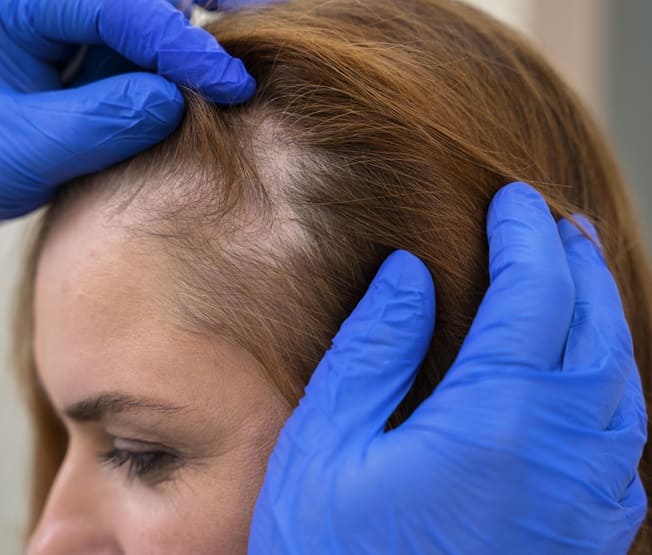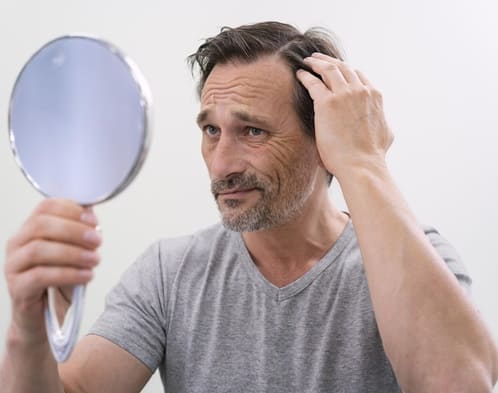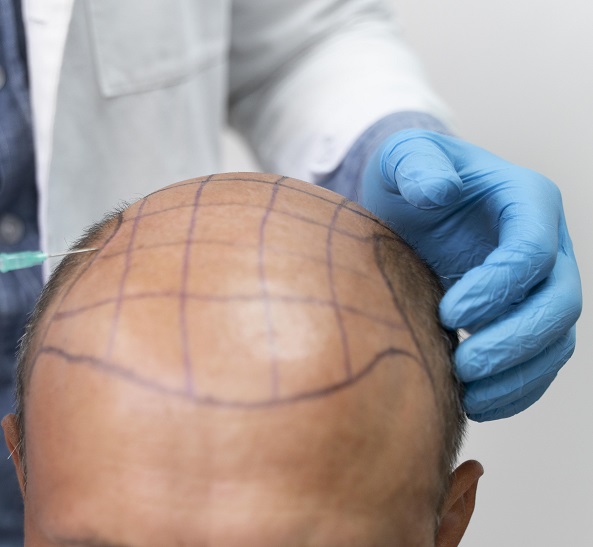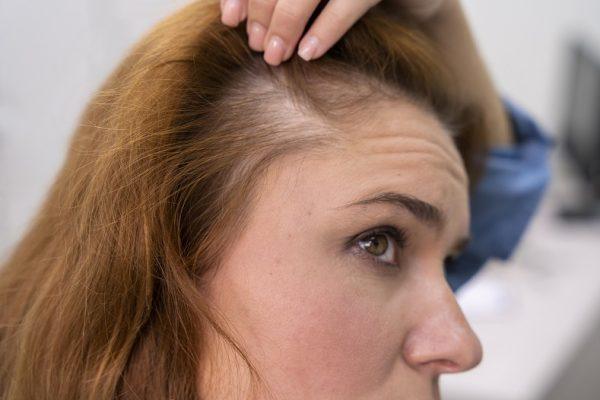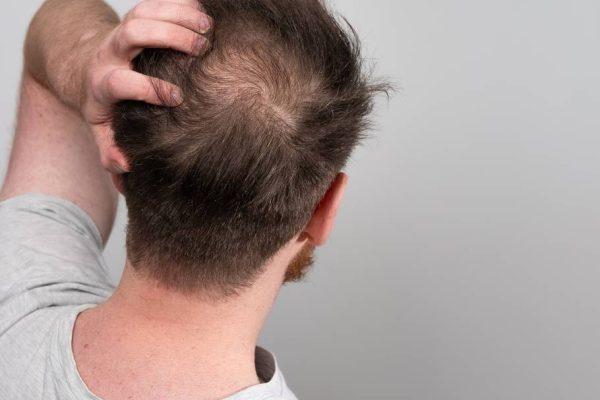Abnormal hormones are often blamed for the loss of scalp hair, perhaps many different conditions can lead to hair loss; some hair loss is part of normal life. However your thyroid gland plays a major role in regulating the hair cycle.
Thyroid is an endocrine gland, a small butterfly-shaped gland located in the front of your neck and serves an important role in your body. Thyroid plays a crucial role in regulating various bodily functions, including metabolism and hair growth. When the thyroid malfunctions, it can lead to a range of health issues, with one of the most visible being hair loss.
Its main function is producing and releasing the endocrine hormone into your bloodstream. Thyroid related disorders occur when this hormone production is disrupted. And this can lead to hair fall and even hair stops growing.
Why Thyroid Hormones affect Hair Cycle
Thyroid Hormones promote the initiation and maintenance of the anagen(active) phase by stimulating cell proliferation and metabolic activity within the hair follicles. Resulting in increasing the rate of hair growth and contributing to the production of new hair fibers. These Hormones help regulate the duration of the telogen(resting) phase by influencing the transition of follicles from the resting phase back to the growth phase.
The hair loss can happen due to your thyroid making either too many hormones (hyperthyroidism, or an overactive thyroid) or not making enough (hypothyroidism, or an underactive thyroid).
Both underactive and overactive thyroid conditions can cause hair to stop growing, as well as hair loss. Mostly the autoimmune thyroid conditions can lead to thyroid-related hair loss. Some of these conditions include:
- Hashimoto’s Thyroiditis (linked to hypothyroidism).
- Graves’ disease (linked to hyperthyroidism).
In some cases, It may also lead to alopecia areata due to a thyroid autoimmune condition. This condition causes patchy hair loss on the scalp or other areas of your body.
How To identify if hair loss is related to Thyroid condition?
Of course, it is normal to lose up to 100 strands of hair from our scalp per day, but anything beyond that number is considered abnormal. Hair loss caused by thyroid conditions depicts more specific symptoms which includes:
- Diffuse Hair Thinning: This type of hair loss often occurs as a diffuse thinning rather than specific bald patches. There is decrease in hair density and volume all over your scalp.
- Increased shedding: People suffering from thyroid issues may also experience excessive hair shedding while washing, brushing or styling. Condition known as Telogen Effluvium, a condition where a higher percentage of hairs enter the resting phase (telogen) and eventually fall out.
- Hair loss on other body parts: In addition to scalp hair loss, individuals with thyroid disorders may experience hair thinning or loss on other body parts, including outer third of eyebrows, eyelashes, pubic hair and armpit hair.
- Hair texture changing: Thyroid-related hair loss can also be seen in the form of changes in the texture of hair. Hair strands becomes more dry, coarse and prone to breakage.
Treatment options for Thyroid-Related Hair Loss
Depending on the Thyroid condition and hair loss symptoms, the treatment varies. It is always important to consult an Endocrinologist/Thyroid Specialist for the treatment and in accordingly hair loss treatments can be opted.
Medications:
If your healthcare provider links thyroid issues with your hair loss, they’ll likely run certain Lab Investigations, and recommend going on certain medications that can help balance thyroid’s hormone production.
Lifestyle Changes:
With any kind of extreme hair loss, there are few things needs to be included in your everyday hair routine. The best precaution is to be gentle with your hair. Try to avoid:
- Avoid tight ponytails, buns or braids. Instead, try wearing looser hairstyles.
- Twisting or pulling the hair to be avoided. And should be gentle while drying, combing and styling. And do not cause heavy tension to hair.
- Avoid using harsher brushes while loosening knots in your hair. Instead, use a wide-toothed comb, that gives follicles more breathing room.
Consider taking Hair Supplements:
The vitamin Biotin and other molecules have been recommended by healthcare professionals to boost your keratin (the protein that helps with the formation of hair, skin and nails). Always you can also try working in more biotin-rich foods like almonds, broccoli and eggs as a fail-safe way to introduce more biotin into your system.
Hair Regrowth Treatments:
- Topical Hair peptides and Minoxidil
- PRP Hair Treatment
- GFC Treatment
- HAIR RESTART LASER treatments
- Low Laser Light Therapy (LLLT)
- Mesotherapy
- Stem cell therapy
- QR678 and QR678 neo
THE BOTTOM LINE:
Losing hair can be distressing and can have impact psychologically. But knowing the root cause can helps in addressing the hair loss issue in right way and getting the proper treatment to manage symptoms. If thyroid issue is the reason behind your hair loss, there are steps you can take. If you’re noticing that you’re starting to shed more hair than usual, be sure to Consult a Trichologist.
FMS Skin and Hair Clinic, provides best hair loss treatment in Hyderabad which includes Hair Transplantation, PRP Treatment for Hair, GFC Hair Treatment and other Advanced Hair Treatments. Consult us for all skin and hair related issues.
For Appointment Booking. Please call us or WhatsApp at 8885060760 Or Email Us at [email protected]

Author: Dr.Deepa


